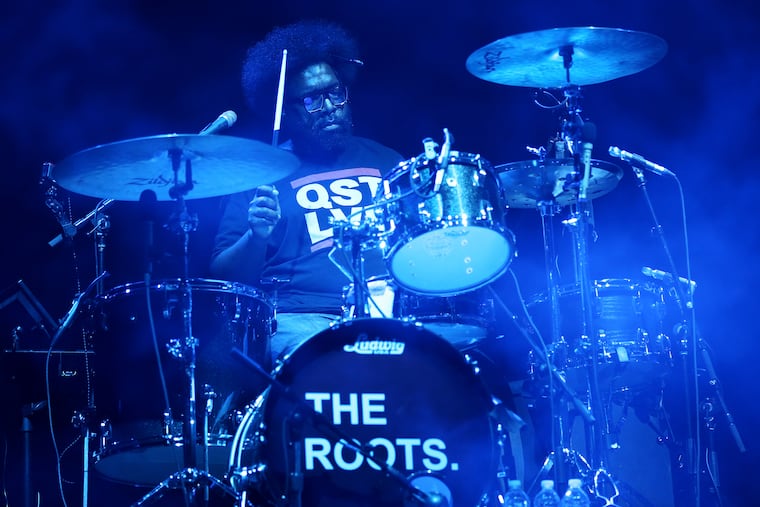The Roots are among hundreds of artists whose master tapes were destroyed in 2008 fire
After news of the fire, Questlove tweeted, “For anyone asking why Do You Want More and Illdelph Halflife wont get reissue treatment."

A fire in Los Angeles that destroyed a building owned by Universal Music Group in 2008 caused far greater damage than had been previously known. Jody Rosen, the author of the New York Times article that disclosed the extent of the cultural tragedy, described the fire as “the biggest disaster in the history of the music business.”
Original master tapes of recordings by hundreds of artists of enormous historical importance were lost, including ones by Louis Armstrong, Ella Fitzgerald, Bing Crosby, Patsy Cline, Muddy Waters, Duke Ellington, Chuck Berry, Buddy Holly and Aretha Franklin.
The piece is online now and will appear in Sunday’s New York Times Magazine.
Among those who lost treasured recordings in the fire: the Roots. On Tuesday, Ahmir “Questlove” Thompson, drummer of the Philadelphia hip-hop and Tonight Show house band, tweeted out the story, along with a comment that this was why there would be no reissue of Do You Want More?!!!??! (1994) and Illadelph Halflife (1996). They were released on the DGC label and are now owned by the Universal Music Group, the world’s largest and one of only three surviving major labels.
For everyone asking why Do You Want More & Illdelph Halflife wont get reissue treatment https://t.co/Vs0ykRcyAK
— Questlove De La Rose (@questlove) June 11, 2019
The loss of masters doesn’t mean that the music is gone forever — it just means the original artifact, the actual recording of the event that happened in the studio, is gone. By definition, that makes it the most authentic superior sonic account of the song. Everything else is a copy, and after that, in the digital world, a copy of a copy.
When music is reissued, engineers and producers typically use up-to-the-minute technology to “remaster” the recordings, going back to the initial tapes. Now, many of those original recordings aren’t there anymore, and the magnitude of the loss is staggering — one Times source suggests that as many as 175,000 reels are gone, and a confidential 2009 Universal Music Group report said that as many as 500,000 songs could be lost.
And in many cases, the master recordings — which are usually owned by the label, not the artist — involve work tape, and unfinished songs. So while there’s no danger that the finished product of Do You Want More?!!!??! will go unheard in its previously released form — I have the CD sitting right here on my desk and can call it up on Spotify in a matter of seconds — songs and snippets that could have been revisited are now likely gone.
To that end, Questlove further tweeted: “I been dying to find all the old reels and mix the 8 or 9 songs that never made DYWM. My plan for both DYWM & IH was to release all the songs and instrumental/acapella mixes on 45—-.”
The drummer, DJ and producer did also disclose, though, that the master tapes for the final, finished versions of the two albums did not burn: “I mean, it’s sad to lose a piece of my life, but we still have the final masters -- as in how it was released in 95/96 are still there.”
News of the fire — which happened in June 2008 — and how its devastating damage had been kept secret, rocked the music world this week. Some characterized it as just the latest example of how record labels routinely fail artists in a relationships where the industry values its own profits over the interests of the musician’s whose creations they exploit. “Yes, the masters burned,” Jason Isbell tweeted, “but the artists got burned the day they signed the contract.”
For other artists, the fire caused angst, and worry that the foundational record of the music they created is now gone forever: “I’m still trying to catch my breath after reading this,” Rosanne Cash wrote. “Universal owns my masters back to 1996. I’m afraid to ask.”
I'm still trying to catch my breath after reading this. Universal owns my masters back to 1996. I'm afraid to ask. https://t.co/4MhUs6yvZU
— rosanne cash (@rosannecash) June 12, 2019